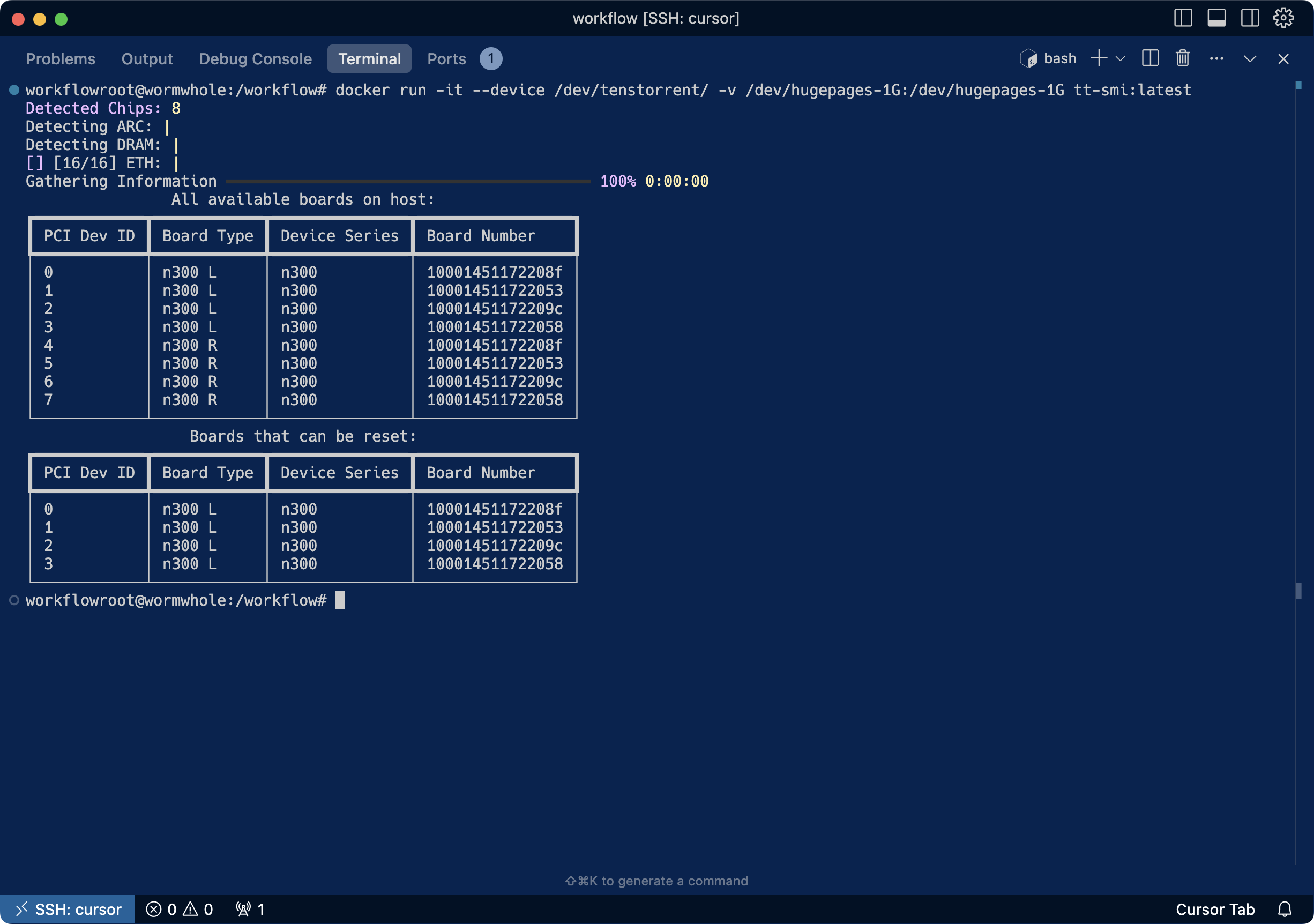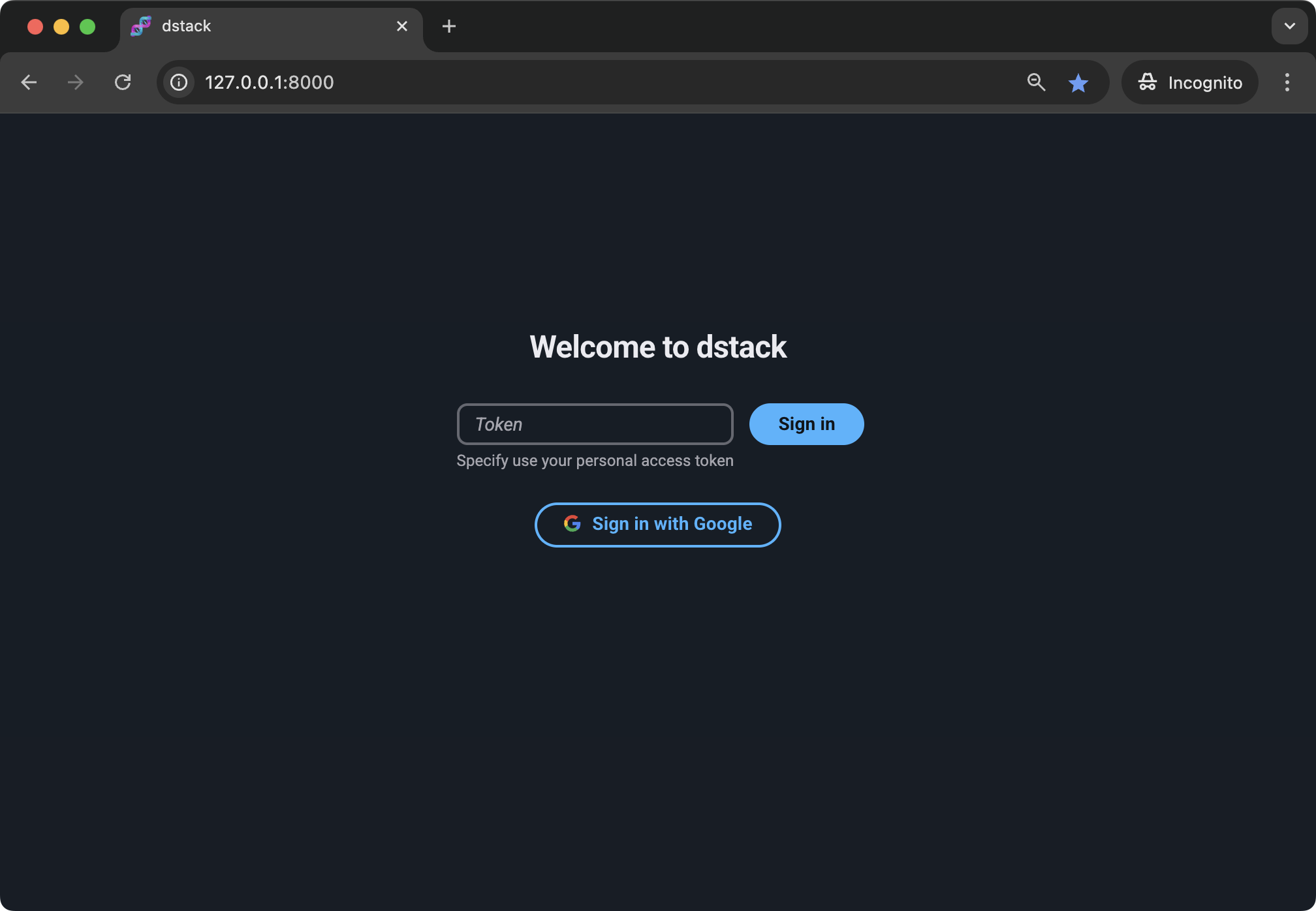Rolling deployment, Secrets, Files, Tenstorrent, and more¶
Thanks to feedback from the community, dstack continues to evolve. Here’s a look at what’s new.
Rolling deployments¶
Previously, updating running services could cause downtime. The latest release fixes this with rolling deployments. Replicas are now updated one by one, allowing uninterrupted traffic during redeployments.
$ dstack apply -f .dstack.yml
Active run my-service already exists. Detected changes that can be updated in-place:
- Repo state (branch, commit, or other)
- File archives
- Configuration properties:
- env
- files
Update the run? [y/n]: y
⠋ Launching my-service...
NAME BACKEND PRICE STATUS SUBMITTED
my-service deployment=1 running 11 mins ago
replica=0 deployment=0 aws (us-west-2) $0.0026 terminating 11 mins ago
replica=1 deployment=1 aws (us-west-2) $0.0026 running 1 min ago
Secrets¶
Secrets let you centrally manage sensitive data like API keys and credentials. They’re scoped to a project, managed by project admins, and can be securely referenced in run configurations.
type: task
name: train
image: nvcr.io/nvidia/pytorch:25.05-py3
registry_auth:
username: $oauthtoken
password: ${{ secrets.ngc_api_key }}
commands:
- git clone https://github.com/pytorch/examples.git pytorch-examples
- cd pytorch-examples/distributed/ddp-tutorial-series
- pip install -r requirements.txt
- |
torchrun \
--nproc-per-node=$DSTACK_GPUS_PER_NODE \
--nnodes=$DSTACK_NODES_NUM \
multinode.py 50 10
resources:
gpu: H100:1..2
shm_size: 24GB
Files¶
By default, dstack mounts the repo directory (where you ran dstack init) to all runs.
If the directory is large or you need files outside of it, use the new files property to map specific local paths into the container.
type: task
name: trl-sft
files:
- .:examples # Maps the directory where `.dstack.yml` to `/workflow/examples`
- ~/.ssh/id_rsa:/root/.ssh/id_rsa # Maps `~/.ssh/id_rsa` to `/root/.ssh/id_rs
python: 3.12
env:
- HF_TOKEN
- HF_HUB_ENABLE_HF_TRANSFER=1
- MODEL=Qwen/Qwen2.5-0.5B
- DATASET=stanfordnlp/imdb
commands:
- uv pip install trl
- |
trl sft \
--model_name_or_path $MODEL --dataset_name $DATASET
--num_processes $DSTACK_GPUS_PER_NODE
resources:
gpu: H100:1
Tenstorrent¶
dstack remains committed to supporting multiple GPU vendors—including NVIDIA, AMD, TPUs, and more recently, Tenstorrent. The latest release improves Tenstorrent support by handling hosts with multiple N300 cards and adds Docker-in-Docker support.

Huge thanks to the Tenstorrent community for testing these improvements!
Docker in Docker¶
Using Docker inside dstack run configurations is now even simpler. Just set docker to true to enable the use of Docker CLI in your runs—allowing you to build images, run containers, use Docker Compose, and more.
type: task
name: docker-nvidia-smi
docker: true
commands:
- |
docker run --gpus all \
nvidia/cuda:12.3.0-base-ubuntu22.04 \
nvidia-smi
resources:
gpu: H100:1
AWS EFA¶
EFA is a network interface for EC2 that enables low-latency, high-bandwidth communication between nodes—crucial for scaling distributed deep learning. With dstack, EFA is automatically enabled when using supported instance types in fleets. Check out our example
Default Docker images¶
If no image is specified, dstack uses a base Docker image that now comes pre-configured with uv, python, pip, essential CUDA drivers, InfiniBand, and NCCL tests (located at /opt/nccl-tests/build).
type: task
name: nccl-tests
nodes: 2
startup_order: workers-first
stop_criteria: master-done
env:
- NCCL_DEBUG=INFO
commands:
- |
if [ $DSTACK_NODE_RANK -eq 0 ]; then
mpirun \
--allow-run-as-root \
--hostfile $DSTACK_MPI_HOSTFILE \
-n $DSTACK_GPUS_NUM \
-N $DSTACK_GPUS_PER_NODE \
--bind-to none \
/opt/nccl-tests/build/all_reduce_perf -b 8 -e 8G -f 2 -g 1
else
sleep infinity
fi
resources:
gpu: nvidia:1..8
shm_size: 16GB
These images are optimized for common use cases and kept lightweight—ideal for everyday development, training, and inference.
Server performance¶
Server-side performance has been improved. With optimized handling and background processing, each server replica can now handle more runs.
Google SSO¶
Alongside the open-source version, dstack also offers dstack Enterprise — which adds dedicated support and extra integrations like Single Sign-On (SSO). The latest release introduces support for configuring your company’s Google account for authentication.

If you’d like to learn more about dstack Enterprise, let us know.
That’s all for now.